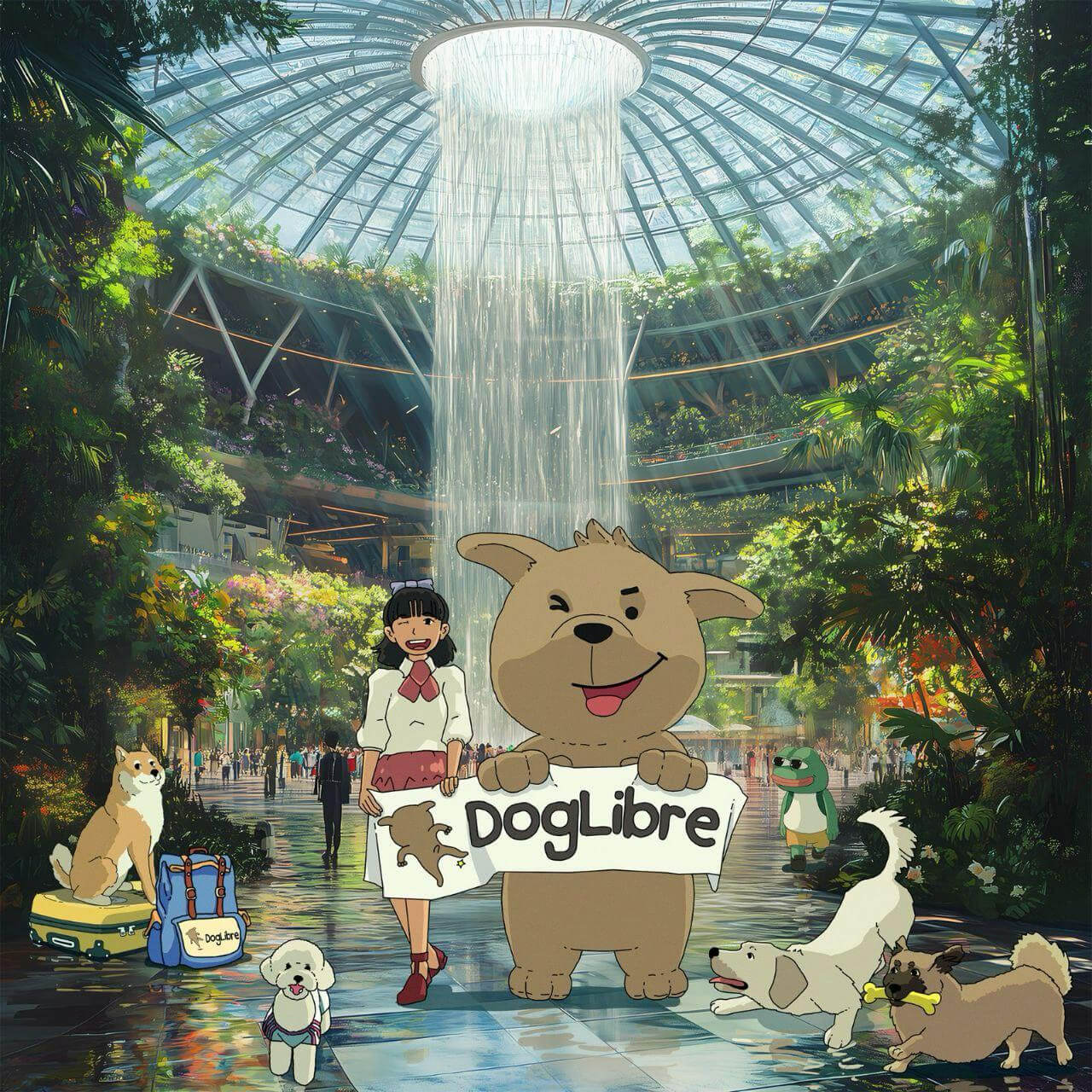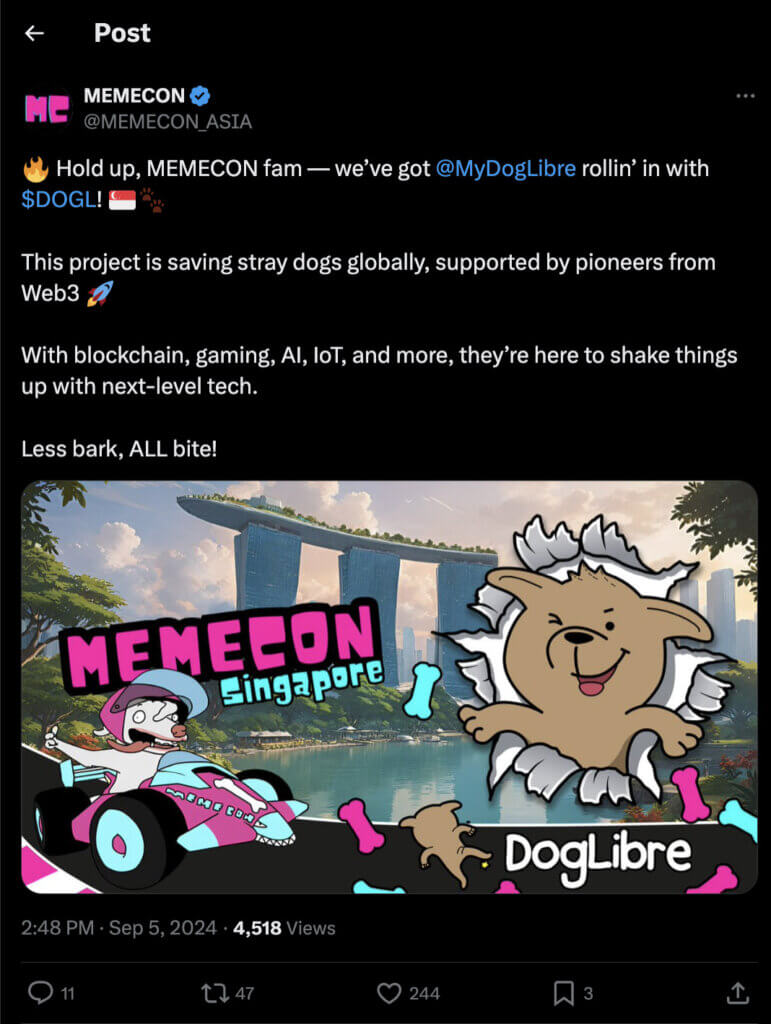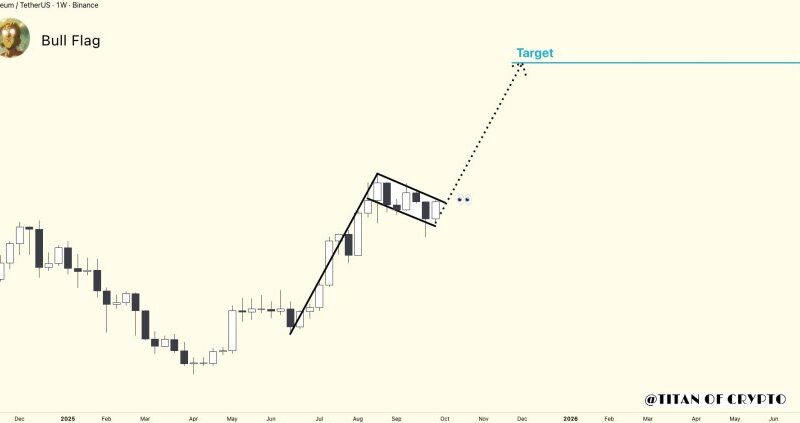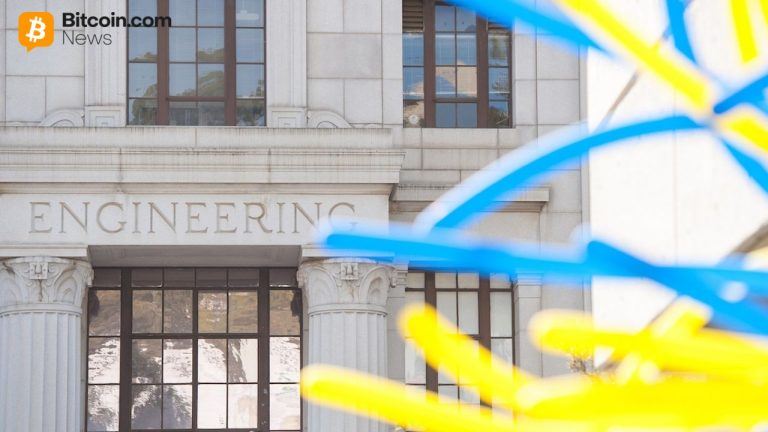The rise of DogLibre: Merging decentralized technology with animal welfare
DogLibre, founded by Lee Lin Liew, represents an innovative fusion of blockchain with a mission-driven purpose: to improve the lives of stray and pet dogs.
By utilizing Web3 technologies, DogLibre seeks to address long-standing issues in animal welfare, including a lack of awareness, trust, funding, and community involvement.
In this article, we’ll explore the vision behind DogLibre, how it operates, and what it aims to achieve for the global dog care community.
The genesis of DogLibre: Passion meets technology
For Lee Lin Liew, DogLibre is more than just a blockchain project; it’s a deeply personal mission rooted in her upbringing. Liew said:
“I grew up surrounded by rescue dogs—my parents started taking in strays even before I was born.”
These early experiences cultivated her passion for animal rights and welfare, eventually inspiring her to leverage her expertise in blockchain to tackle the challenges faced by dog rescue organizations.
Through her work at previous Web3 ventures like Decentraland, Liew observed the transformative power of blockchain in galvanizing communities.
This realization led her to envision a system where blockchain could directly address the core issues confronting animal rescue operations, such as inconsistent funding and insufficient community engagement.

Lessons from Decentraland: Empowering communities
Liew’s experience with Decentraland, a virtual reality platform built on blockchain, provided invaluable lessons in community building. Liew explained:
“We built Decentraland from the ground up into a multi-billion market cap project, and it taught me about the power of community when they are empowered to take a stake in something.”
This insight became foundational for DogLibre’s structure. By creating a decentralized governance system, DogLibre allows dog lovers and community members to have a direct say in the project’s direction.
Rather than relying on centralized organizations that often struggle with funding and decision-making, DogLibre empowers its supporters to engage in animal welfare efforts through a system that fosters trust, transparency, and accountability.
Blockchain’s Role in Animal Welfare: How DogLibre Works
At the heart of DogLibre is the $DOGL token, which aligns incentives and motivates stakeholders to participate in solving four key issues in animal welfare: awareness, trust, funding, and community involvement.
“Blockchain technology is central to resolving transparency and trust issues,” says Liew.
One of the most innovative features of the platform is the tokenization of rescue dogs, where real-time updates about each animal’s health, status, and adoption journey are recorded on the blockchain.
Meet Jabo, a true survivor and a testament to the incredible impact #DogLibre and our community can make. Thanks to $DOGL, Jabo’s journey from suffering to smiling is nothing short of miraculous. Rescued after being found chained near a garbage site, with his right eye cruelly… pic.twitter.com/spgLiHaLUY
— DogLibre (@MyDogLibre) September 14, 2024
This is made possible through the use of AI, smart wearable devices, and other technologies that collect valuable data from dogs. These wearables contribute not only to pet health but also to broader research and innovation in animal care.
The data collected helps feed AI models, improving pet care while creating new monetization opportunities that can be reinvested into shelters, medical care, and R&D.
Overcoming Challenges: Education and Trust
While DogLibre has grand ambitions, it also faces challenges. Liew notes that educating people about blockchain and fostering trust will be hurdles. This is true even for members of the Web3 community, who are often enthusiastic but may not fully understand the technical complexities of the platform.
DogLibre’s strategy to overcome these challenges is rooted in transparency and community involvement.
By showcasing how blockchain can be a force for good, particularly in a sector like animal welfare, the project aims to win over skeptics and build a broad base of support.
Balancing Blockchain and Mission-Driven Goals
The fusion of blockchain with social good is a delicate balancing act, but one that Liew and her team are keenly aware of.
“Balancing the technical demands of blockchain with our mission to improve animal welfare is at the heart of what we do at DogLibre,” says Liew.
The platform’s focus on transparency—through the tokenization of rescue dogs and blockchain-based records of every donation, adoption, and medical update—ensures that the community remains engaged and trusts the system.
The project’s tech team works closely with animal welfare experts to ensure that every technological decision enhances, rather than complicates, their mission to help animals.
Trends Shaping the Future of DogLibre
As a mentor at R3 and Outliers Venture Capital, Liew has a finger on the pulse of blockchain trends. She is particularly excited about the move toward real-world utility, noting that blockchain is no longer just a speculative tool.
This shift aligns perfectly with DogLibre’s mission to solve real-world problems through decentralized technology.
Another trend that could shape DogLibre’s future is cross-chain interoperability, which allows different blockchain networks to communicate with each other. This development could enable DogLibre to collaborate across various blockchain ecosystems, expanding its reach and creating more opportunities for partnerships.
Community involvement: The heart of DogLibre
At its core, DogLibre is a community-driven project. The platform’s decentralized structure allows community members to actively participate in governance, making decisions that affect the future of the project.
Beyond simply holding $DOGL tokens, community members can propose new initiatives, drive policy changes, and advocate for better animal welfare standards.
“Community involvement is absolutely central to DogLibre’s mission,” says Liew.
This decentralized approach not only fosters engagement but also ensures that DogLibre remains aligned with the needs and values of its supporters.
Scaling for global impact
DogLibre’s ambitions extend beyond the blockchain. The project involves real-world components like rescue dogs, smart devices, and shelters, all of which require robust infrastructure and partnerships.
To scale globally, DogLibre is building local partnerships with animal welfare organizations, leveraging blockchain to ensure transparency and security in these operations.
“We’re also creating a network of global ambassadors who will champion DogLibre’s mission in their own communities,” says Liew.
By mobilizing local talent and expertise, DogLibre can adapt its solutions to the unique challenges of different regions, ensuring that its impact is both scalable and sustainable.
Measuring Success: Real-World and Digital Metrics
Success for DogLibre is measured through both quantitative and qualitative metrics. In the next year, the project is focused on four key areas:
- User Adoption and Growth: Increasing the number of $DOGL token holders and platform users.
- Partnerships: Establishing collaborations with organizations in the tech, blockchain, and animal welfare sectors.
- Real-World Impact: Tracking the number of dogs rescued, supported, and adopted through the platform.
- Community Engagement: Monitoring participation in governance processes and community-driven initiatives.
Ultimately, DogLibre’s success will be judged by its tangible impact on animal welfare, from increased adoptions to improved shelter conditions and medical care for stray dogs.
Looking ahead: A global movement
Liew envisions DogLibre becoming a global leader at the intersection of pet care and technology. Over the next 5 to 10 years, the platform will continue integrating cutting-edge advancements in blockchain, AI, and smart devices to drive real-world change.
“We want to create a global movement that not only sets industry standards but also influences policy changes,” Liew says.
DogLibre’s long-term goal is to redefine how the world cares for animals, using decentralized technology and community-driven efforts to ensure that innovation benefits all involved.
DogLibre’s is heading to Token2049 and MemeCon in Singapore to talk about how they’re using tech and tokenomics to make a real impact for dogs.

Conclusion
DogLibre represents a new frontier in the blockchain space, where technology meets social good. By leveraging blockchain to address the challenges of transparency, trust, and community involvement in animal welfare, DogLibre has the potential to make a lasting impact on the lives of stray and pet dogs worldwide.
As the project scales and evolves, it will serve as a model of how blockchain and crypto economics can be used for real-world positive change, one dog at a time.
The post The rise of DogLibre: Merging decentralized technology with animal welfare appeared first on CryptoSlate.




